The Bong Joon-ho Page
compiled by Darcy Paquet
|
With his off-tempo, quirky first feature, Bong Joon-ho marked himself out as a talented newcomer. His second film, a smash hit, established him as a major directorial star. His third set a new box-office record and propelled him to the very top of the Korean film industry. Few Korean directors, if any, have experienced such a rapid rise to stardom. Born on September 14, 1969, Bong says he decided in middle school that he wanted to be a filmmaker, perhaps influenced by his being raised in an artistic family (his father was a designer and his grandfather a noted author). He majored in sociology at Yonsei University in the late 1980s during the height of Korea's pro-democracy movement, and was part of the film club there. He is said to have been particularly fond of Edward Yang, Hou Hsiao-hsien and Imamura Shohei at the time. In the early 1990s he was accepted in the two-year program at what many people consider Korea's top film school, the Korean Academy of Film Arts (KAFA). While there he made a number of 16mm short films, with two -- Memory in the Frame and Incoherence -- invited to screen at the Vancouver and Hong Kong international film festivals. He also collaborated on several works of his classmates -- most notably as cinematographer on the highly acclaimed short 2001 Imagine directed by his friend Jang Jun-hwan (Save the Green Planet). He was also lighting director on an early short by Choi Equan (Voice). After graduating, he spent the next five years contributing in various capacities to works by other directors. He received a partial screenplay credit on the 1996 omnibus film Seven Reasons Why Beer is Better Than My Lover; both screenplay and assistant director credits on Park Ki-yong's 1997 debut Motel Cactus; and is one of four writers (together with Jang Jun-hwan) credited for the screenplay of Phantom the Submarine (1999). Shortly afterwards Bong began shooting his first feature Barking Dogs Never Bite under producer Tcha Seung-jai, who had overseen the production of both Motel Cactus and Phantom the Submarine. The film, about a low-ranking university lecturer who abducts a neighbor's dog, was shot in the same apartment complex where Bong had lived after getting married. Although now remembered fondly, at the time of its release in Feburary 2000 it did not stir up much interest among audiences, and the response from critics was positive but slightly muted. (The first half of 2000 saw a burst of inspired features from Korea, including Peppermint Candy, Lies, Chunhyang, The Foul King, The Isle and Virgin Stripped Bare by Her Bachelors, so that Bong's film was slightly overlooked in comparison) Nonetheless, the film was invited to the competition section of Spain's prestigious San Sebastian International Film Festival, and it would go on to win awards at Slamdance and Hong Kong. Slowly building international word of mouth also helped the film financially -- over two years after its local release, the film reached its financial break-even point due to sales to overseas territories. Bong's second film, a much larger-scale project, was adapted from a popular stage play centered around a real-life serial killer who terrorized a rural town in the 1980s (and was never caught). Rumor has it that director Park Chan-wook had originally shown an interest in this project -- at the same time that Bong was considering adapting a Japanese comic book called Oldboy. In the end, however, it was Bong and co-screenwriter Shim Seong-bo who set about adapting the play into what would become Memories of Murder. Production of the film was a long and arduous process (the film set a local record for the sheer number of locations it utilized), but with the weather providing unexpected help with some stunning skyscapes, the film wrapped without major problems and was released in April 2003. Memories of Murder was an immediate critical and popular sensation. Enthusiastic word of mouth drove the film to sell over 5 million tickets (rescuing Tcha Seung-jai's production company Sidus from near-bankruptcy), and a string of local honors followed, including Best Picture, Best Director, Best Actor (for Song Kang-ho) and Best Lighting prizes at the 2003 Grand Bell Awards. Although passed over by the Cannes and Venice Film Festivals, the film eventually received its international premiere (again) at San Sebastian, where it picked up three awards including Best Director. The film also received an unusually strong critical reception on its release in foreign territories such as France and the U.S. Following this, Bong took some time to contribute short films to two omnibus projects. Influenza is a disturbing 30-minute work acted out entirely in front of real CCTV cameras stationed throughout Seoul. The film, which charts (from a distance, quite literally) a desperate man's turn to violent crime over the space of five years, was commissioned by the Jeonju International Film Festival, together with works by Japanese director Iishi Sogo and Hong Kong-based Yu Lik Wai. Twentidentity, meanwhile, is a 20-part omnibus film made by alumni of the Korean Academy of Film Arts, on the occasion of the school's 20th anniversary. Bong's contribution is Sink and Rise, a whimsical work set alongside the Han River that can be seen as a warmup for the director's third feature The Host. The Host marked a newly ambitious gamble in Bong's career, and indeed for the Korean film industry as a whole. The big-budget ($12 million) work centered around a fictional monster that rises up out of the Han River and wrecks havoc on the people of Seoul -- and on one family in particular. Featuring many of the actors who had appeared in his previous films, the film was the focus of strong audience interest even before it started shooting, but many doubts were raised about whether a Korean production could rise to the challenge of creating a full-fledged, believable digital monster. After initially contacting New Zealand's Weta Digital -- the company responsible for the CGI in The Lord of the Rings -- schedule conflicts led Bong to San Francisco-based The Orphanage, who took on the majority of the effects work. After rushing to meet deadlines, the film received a rapturous premiere in the Directors Fortnight section of the 2006 Cannes Film Festival. Although local audiences were slightly more critical of The Host than attendees at Cannes, the film was nonetheless a must-see event during its summer release. With theater owners calling for more and more prints, the film enjoyed the widest release ever (on over a third of the nation's 1800 screens) and set a new box-office record with just under 13 million tickets sold. The film was quickly sold around the world, and US studio Universal even snapped up remake rights to the picture. Bong in general is known as being a director who takes a great interest in film genres, while simultaneously trying to move beyond genre's usual boundaries. In this he shares a common approach with a number of other noted Korean filmmakers, such as Kim Jee-woon, Park Chan-wook, and Jang Jun-hwan. He is also known for the pure craft and finished quality of his works. Korean film industry insiders have nicknamed him "Bong Tae-il," which, pronounced in Korean, sounds similar to the word "detail". He also displays a fascination for strong subject matter. Although not especially violent, his films often make viewers squirm -- whether at seeing a cute puppy in mortal danger in Barking Dogs, or witnessing a sympathetic character meet a cruel end in Memories of Murder or The Host. At the same time, his films are filled with (often black) humor and sudden mood shifts, making for an emotional roller coaster ride. The fact that he is able to combine all these contrasting elements into such a smooth whole is Bong's particular strength as a filmmaker. (Darcy Paquet)
|
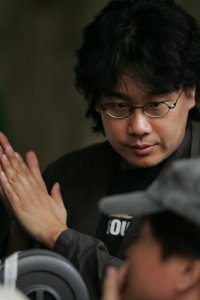
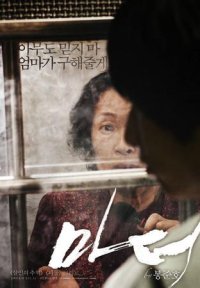

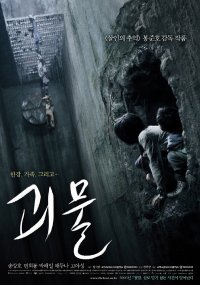
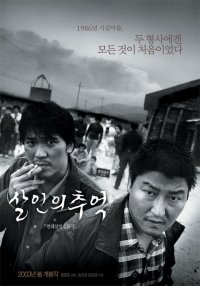
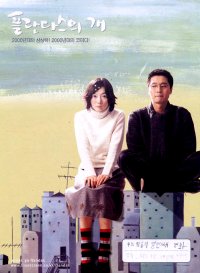
|
Filmography
Mother (2009) Links on Koreanfilm.org
An Interview with Bong Joon-ho Awards and Honors
2010 Indie Spirit Awards (US), Best Foreign Film nomination for Mother. 2009 Dubai International Film Festival, Best Screenplay Award for Mother. 2009 Mar del Plata Film Festival (Argentina), SIGNIS Award for Mother. 2009 China Golden Rooster and Hundred Flowers Film Festival, Best Actress to Kim Hae-ja for Mother. 2009 Asia Pacific Screen Awards, Best Actress to Kim Hae-ja for Mother. 2010 Academy Awards, Mother selected as Korea's official entry for Best Foreign Language Film category. 2007 Asian Film Awards (Hong Kong), Best Film, Best Actor, Best Cinematography, Best Visual Effects to The Host. 2006 Sitges Int'l Film Festival of Catalonia (Spain), Best Special Effects and Orient Express Award for Best Asian Film to The Host. 2003 Torino Film Festival (Italy), Best Screenplay Award, Audience Award for Memories of Murder. 2003 Tokyo International Film Festival (Japan), Asian Film Award to Memories of Murder. 2003 San Sebastian International Film Festival (Spain), Silver Shell for Best Director, Altadis New Director Award, and FIPRESCI Award for Memories of Murder. 2001 Buenos Aires International Film Festival (Argentina), special award presented to composer Cho Sung-woo for his soundtrack for Barking Dogs Never Bite. 2001 Munich Film Fest (Germany), Best Newcomer Award to producer Cho Min-hwan for Barking Dogs Never Bite. 2001 Hong Kong International Film Festival, FIPRESCI Award for young Asian filmmakers to Barking Dogs Never Bite. 2001 Slamdance Film Festival, Best Editing for Barking Dogs Never Bite.
References
Dargis, Manohla. "Unprepared and Ill-Equipped for a Serial Killer at Large." (review of Memories of Murder) New York Times, July 15, 2005. Lim, Youn-hui, ed. Bong Joon-ho: Mapping Reality Within the Maze of Genre. Published by the Korean Film Council in association with Cine21, Seoul, 2005. Park, Ed. "The Bong Show: Barking Dogs and Memories of Murder." Cinema Scope, Winter 2003, no. 17: pp 14-15. Rayns, Tony. "Purity of Desire." (interview). Sight & Sound, September, 2004: 18-20. Rayns, Tony. "Suspicious Minds." (About release of Memories of Murder in England.) Sight & Sound, September, 2004: 18-20. Russell, Mark. "Horrors! He Likes Ideas and Metaphors." New York Times, May 28, 2006.
|